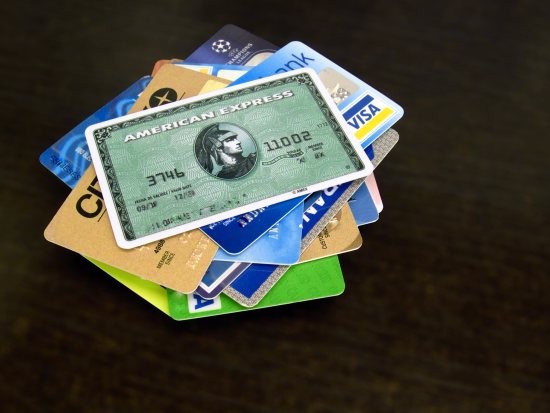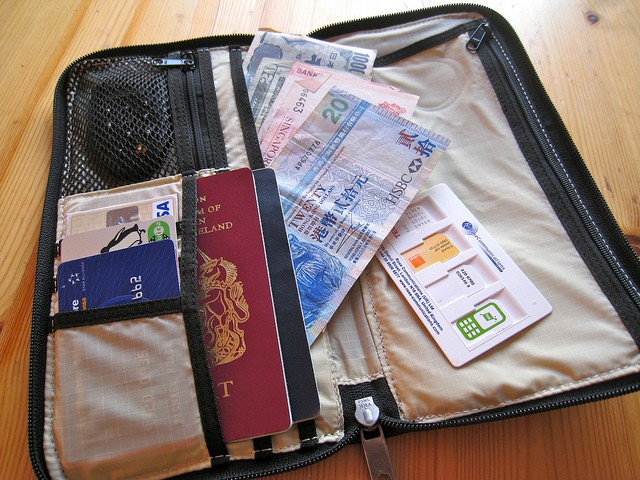How to Responsibly Use Credit Cards for Your Business
Post on: 1 Июнь, 2015 No Comment

If you operate a small- to mid-sized business. there are a million different things you need to manage and take care of on a daily basis. Unfortunately for many, managing your business credit rating and in turn your business credit cards often gets pushed to the back of that list. But to succeed as a company, it is imperative to make sure your business is as reputable to creditors as it is to customers and vendors.
Too many small businesses fall into debt due to poor credit management strategies. According to a recent Tower Group report, over 2/3 of small businesses use a credit card for expenses but only 40% of companies use a business card exclusively. While there are different theories on whether you need to completely separate business and personal expenses, in most cases you will need to use your personal credit history to initially obtain the business financing.
It’s more important now than it has been in years to make sure your personal credit rating is in good shape if you’re looking for business credit, says Beverly Harzog, a financial journalist and spokeswoman for cardratings.com. If your business doesn’t have much of a track record financially, it’s very unlikely you’ll get a loan from a bank, who have become very tight on funding new businesses over the past few years.
How to Responsibly Use Credit Cards for Your Business: Before You Open a Business Line of Credit
While your personal credit score is easy to obtain via the major bureaus (TransUnion. Equifax and Experian ), it’s important to understand how your business rating is calculated differently. American Express offers these tips to business owners:
Your business score is based primarily on the timeliness of payments
Unlike personal credit, having multiple active accounts can be a positive as long as they are in good standing. It demonstrations that your business is savvy about managing its finances.
Some information in your business profile may be self-reported by establishing a profile with the different credit bureaus
Business creditors are not required to report payments to the bureaus, so to build a good rating you should ask vendors to report your payment performance
So before you even establish a business line of credit, there are two major things you should focus on. First, make sure that you understand your financials and that they align your records with federal account history and balances. Secondly, define how much credit you actually need by analyzing your business plan and projecting your monthly cash flow. This should determine how much credit you’ll need to apply for, as applying for too much can actually affect you negatively. Focus on building credit through vendors and suppliers to improve your credit rating for your business.
Dig Deeper: Business Credit Application
How to Responsibly Use Credit Cards for Your Business: Managing Your Credit Lines
Once you’ve obtained a business line of credit, or small business credit cards, it’s important to manage them just as carefully as you do your personal credit (by paying bills on time, not using it for cash advances unless necessary and limiting card hopping).
The biggest things that you need to be aware of as a business are to avoid co-mingling, to keep good records and file monthly reports, to effectively manage your cash flow and to take on debt only if it will help to drive incremental revenue.
Avoid Co-Mingling
Mixing personal and business expenses, particularly for a start-up, can be the toughest things to manage. But you need to use common sense, even if you’ve received your business line of credit via your personal credit history. Any mistakes, missed payments, purchases exceeding your credit limit or simple mismanagement can be damning to not only your business rating but your personal credit score. In other words, don’t charge your plumbing repairs to your small business card. By using your small business card for only pure business expenses, you are showing the IRS and creditors that you are serious about your business, which will help you to obtain more credit and improve your rating.
Check Your Mail
While it may seem petty, it is as important as ever for businesses to keep tabs on what their credit cards are doing. And that means checking the mail. While the passing of the CARD Act in 2009 was aimed namely at consumers and has little impact on business lines of credit, creditors are changing policies, fees and more than in years past. By monitoring what your credit cards are sending you, you can realize if there are fees you don’t want to pay, if you need to switch cards, or if your business will be affected by new reform.
There are many nuances to small business credit cards, says Molly Brogan, a spokeswoman for the National Small Business Association. the oldest and largest non-partisan citizen advocacy group representing over 150,000 small businesses. You need to first understand what protections your card does offer as a small business, and then you’ll understand more clearly what it doesn’t.
Regular Monthly reports
So many companies completely forego monthly financial statements, says Jeff Van Winkle, a board member for the National Small Business Association who works with Clark Hill. a law firm that provides legal services to many small- to mid-sized businesses. You need to establish where your company is at financially each month so you know whether or not you have enough capital to pay all of your debts, including your credit.

Get Rewards That Matter to You
One of the best benefits for small businesses is that small business credit cards often offer great rewards, which can be very specific to your industry and interests. By researching cards individually or comparing various creditors at a site like cardratings.com, you can determine which card will give you the most money back or reward you for your purchases. If you spend a lot of time in the car driving with your company, you might want a card that includes gas rewards, Van Winkle says. Really, there are so many options out there that you can’t afford not to do your research.
Additionally, specific cards offer better protection for purchases and investments in your company. If you’re very concerned about credit card fraud, you can invest in specific protection programs, though in most cases the card themselves will be secure. To read more on the topic of protection, visit Bankrate.com .
Manage Your Cash Flow
One of the major differences between business owners who continually stay in the black and those who don’t is their focus on cash flow management. Ask any successful business owner and they will often confirm that the easiest way to maximize profit is to manage your cash flow.
First off, look at your business plan and your monthly budget, says Harzog. When you know what your cash flow is going to be from the beginning to the end of the month, specifically which days might be higher than others, that can be a huge benefit to you. You can then negotiate with your creditor your balance due date so it coincides with the flow projection.
Better cash flow management will assist you in meeting payroll demands, reducing your dependence on quick collections and taking advantage of opportunities to increase funds, such as offering discounts to vendors or clients for faster payment.
Take on Debt Only If It Increases Revenue
Hiring new staff, moving to a new and more profitable location or buying equipment upgrades are good reasons to take on considerable debt. But if your business is set up solidly and you begin making purchases solely because you think it’s a good idea, you are bound to make it more difficult for the revenue to grow.
Dig Deeper: Report: Small Business Credit Card Use Creates Jobs














